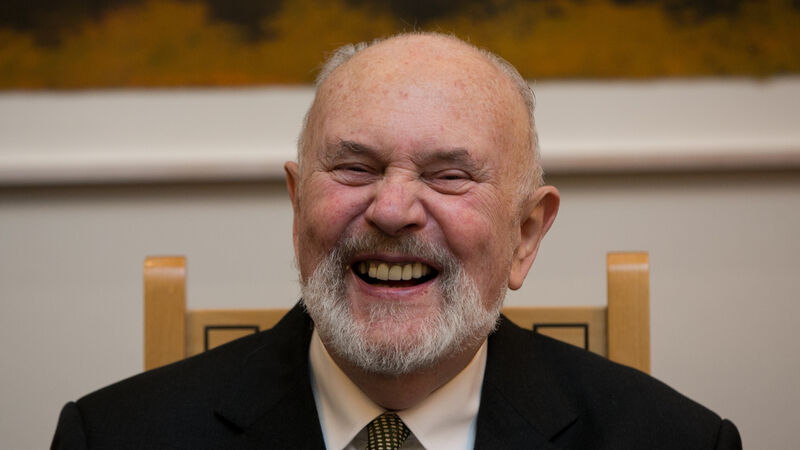State papers: Government considered older age of consent for sex between gay couples

New legislation was being introduced following the ECHR ruling five years earlier as a result of a long-running campaign led by independent senator and Trinity College Dublin lecturer David Norris to decriminalise homosexuality. Picture: Gareth Chaney/Collins
The Government considered having an older age of consent for sex between gay people than for heterosexual intercourse when it was planning to decriminalise homosexuality 30 years ago.
Newly released State records show the Government looked at setting 21 years as the age of consent for intercourse between two people of the same sex in 1993, although it acknowledged it might result in Ireland being perceived as “backward.”













